Fish scientists at Auburn University have recently refined a gene...
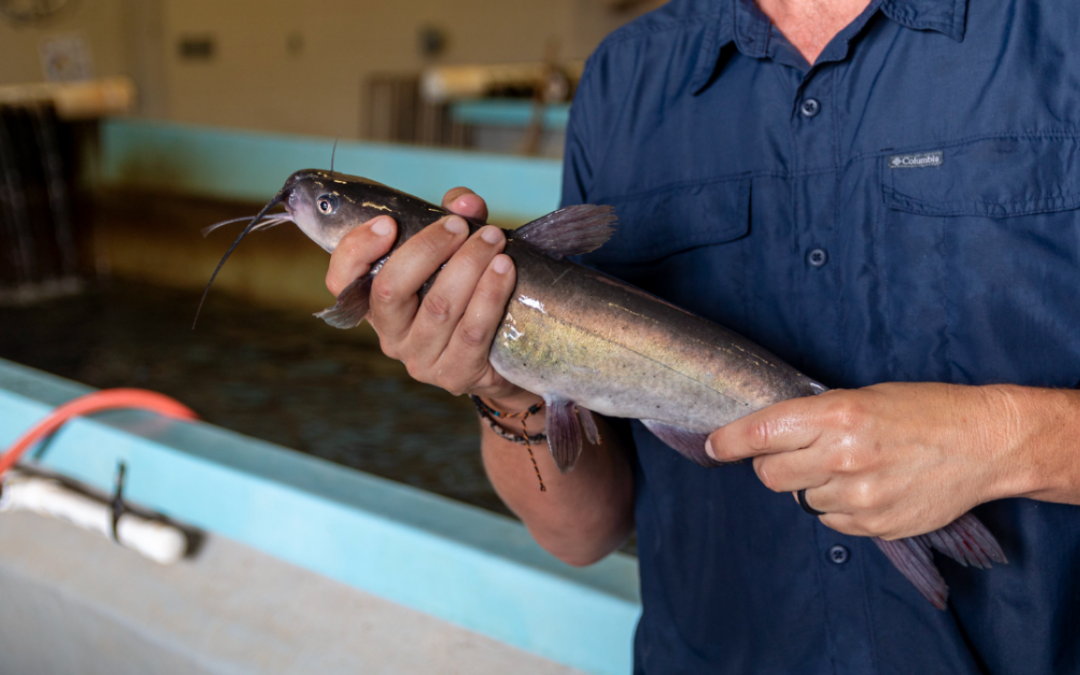

Fish scientists at Auburn University have recently refined a gene...
From seed selection to pesticide application, farmers work diligently to manage every factor that influences yield—but wildlife damage in row crops remains one of the most troublesome aspects to control. To help find solutions, assistant professor and Alabama...
There are few professions that embody a humble spirit more than being a farmhand. Whether it’s tilling the land or helping a cow deliver her first calf, the humble farmhand knows the value of manual labor but is rarely recognized for their toil and devotion. In...
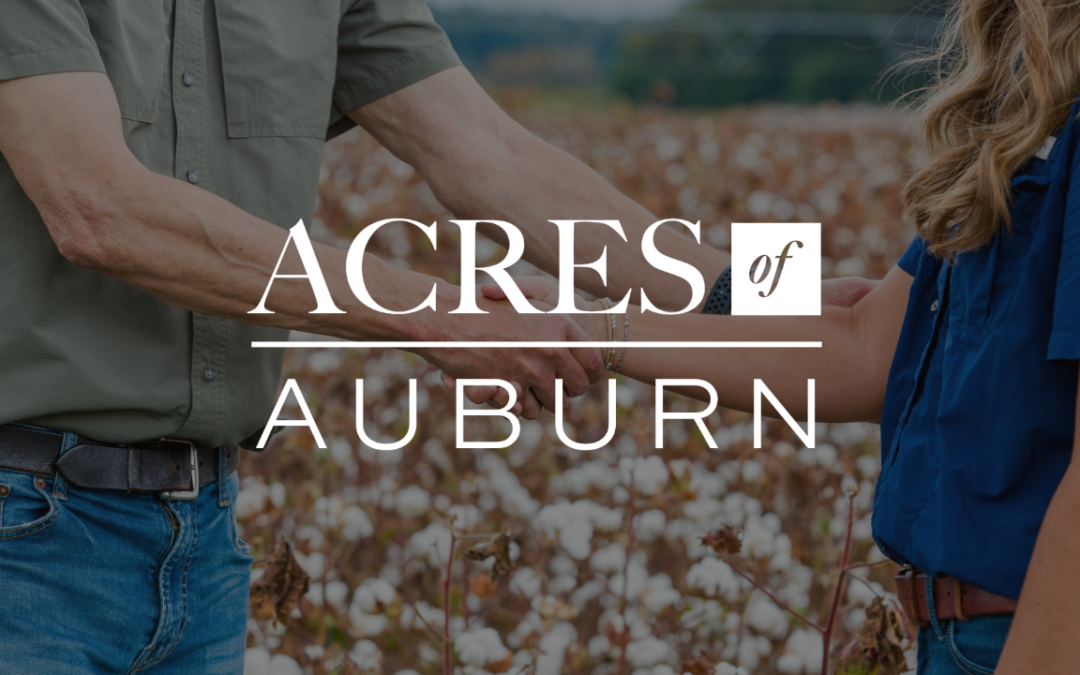
As she steps into the field at Wiregrass, Caitlyn Lawton (Auburn Ph.D. student) sees more than crops—she’s scouting for pest damage as part of her Integrated Pest Management research. Through the Alabama Agricultural Experiment Station, students like Caitlyn gain hands-on skills and practical knowledge to improve agricultural production. Learn more in the premiere episode of Acres of Auburn.
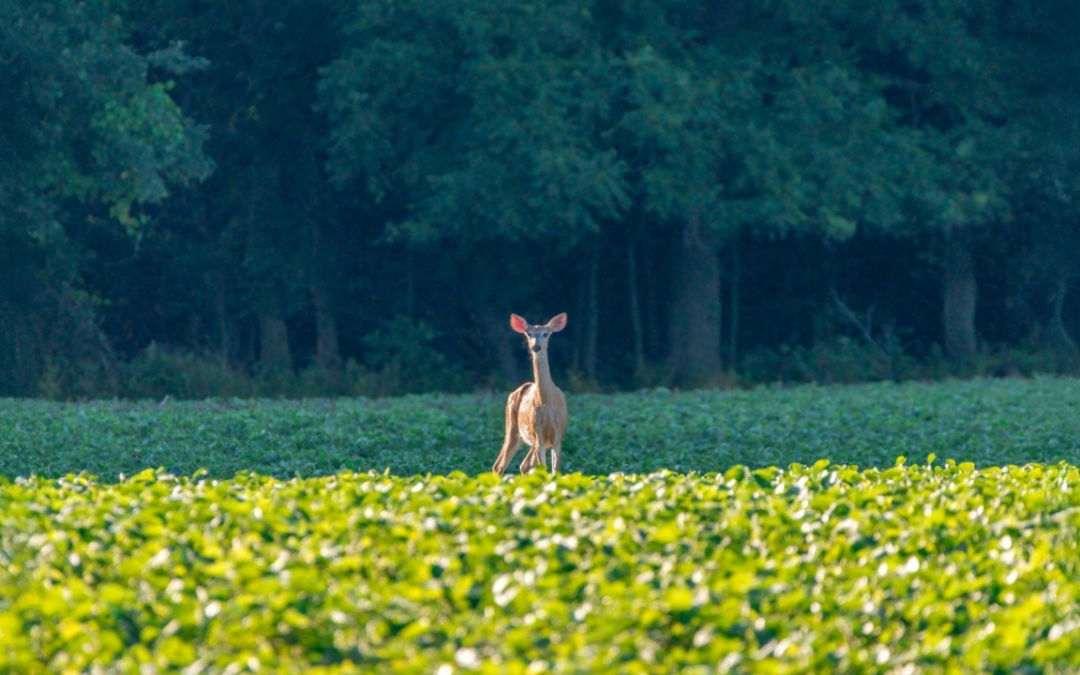
From seed selection to pesticide application, farmers work diligently to manage every factor that influences yield—but wildlife damage in row crops remains one of the...

There are few professions that embody a humble spirit more than being a farmhand. Whether it’s tilling the land or helping a cow deliver her first calf, the humble...
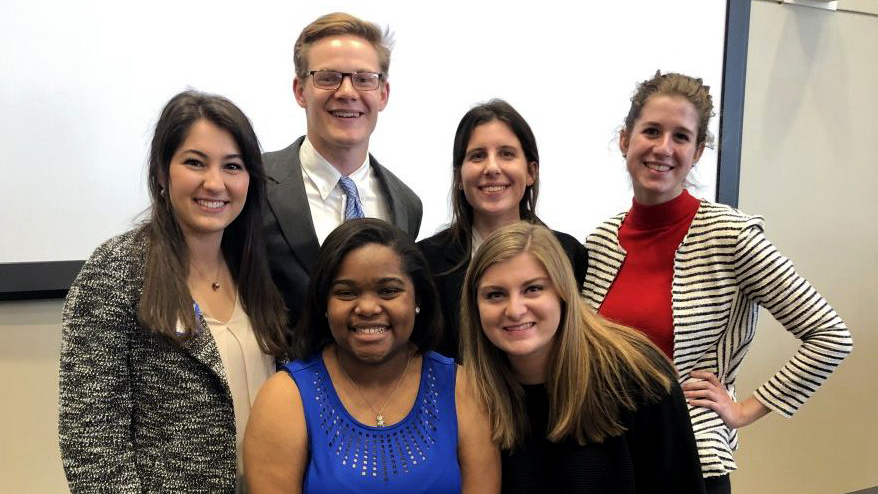
A six-member team of Auburn agriculture majors won first place in the university’s inaugural Global Health Case Competition in January and advanced to the 2019 statewide contest in March at the University of Alabama Birmingham.
Pioneering plant biotechnologist Kan Wang will discuss crop genetic editing and its implications for sustainable agriculture when she delivers the Spring 2019 York Lecture Tuesday, Feb. 5, at Auburn University. The 4 p.m. presentation in Room 2510 of the Mell...
Auburn University biosystems engineer Jeremiah Davis has assumed duties as director of the Auburn-based National Poultry Technology Center, or NPTC. Davis had served as associate director of the research and outreach center since joining the Auburn faculty in 2015 and...
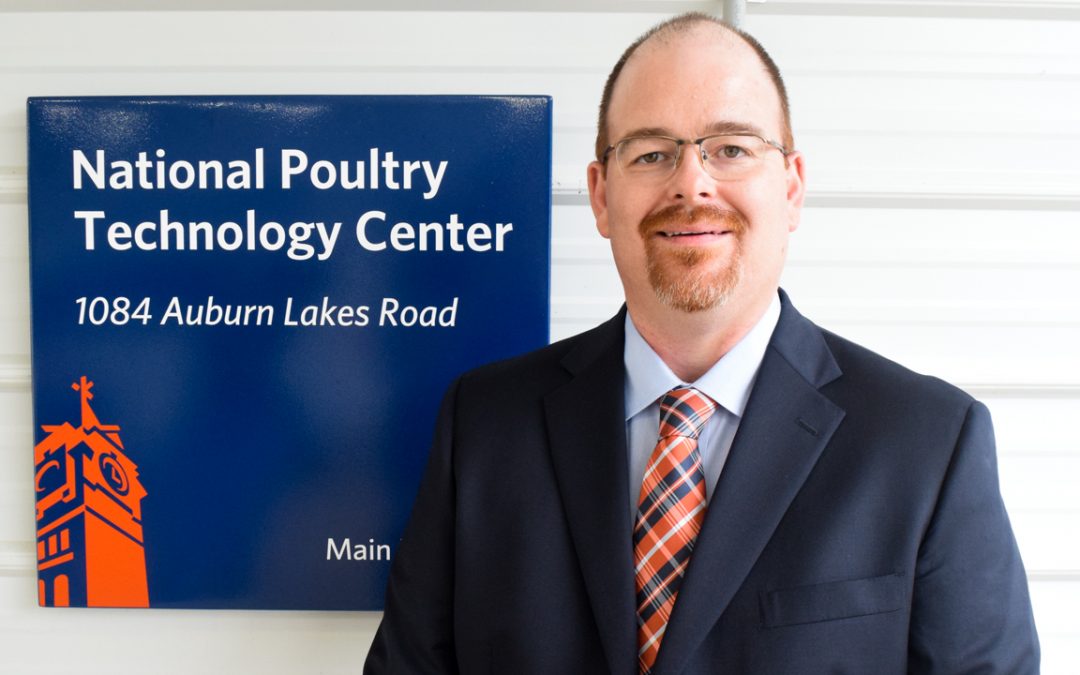
Auburn University biosystems engineer Jeremiah Davis has assumed duties as director of the Auburn-based National Poultry Technology Center, or NPTC.
The National Academy of Inventors, or NAI, has named Joseph Kloepper, Alumni Professor of plant pathology in Auburn’s College of Agriculture, as one of its 2018 fellows. The 2018 fellows represent 125 research universities and governmental and nonprofit research...
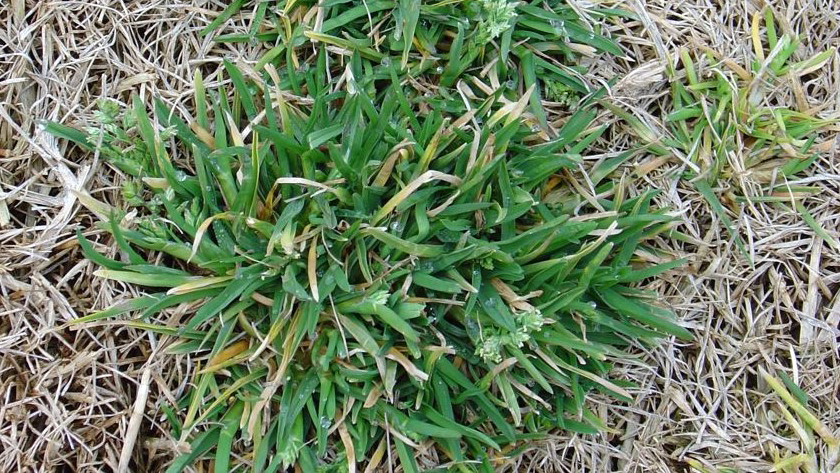
A team of university scientists from across the U.S. is waging a nationwide offensive against a dastardly weed that the turfgrass industry in Alabama and beyond deems Enemy No. 1.
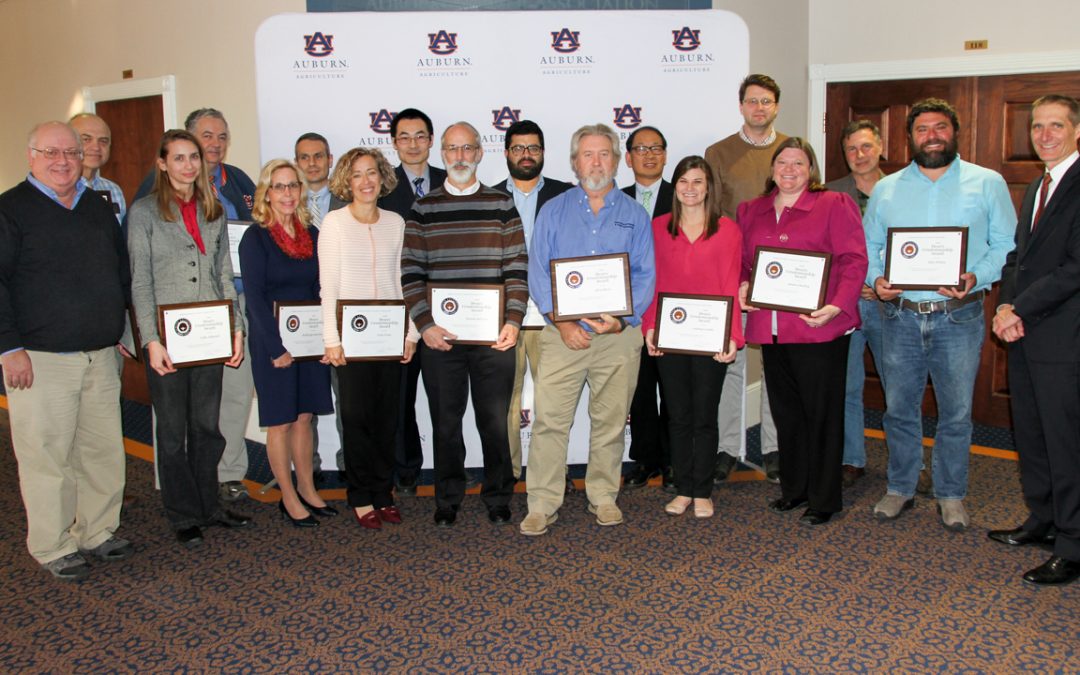
Both professors in the College of Agriculture’s School of Fisheries, Aquaculture and Aquatic Sciences, are among the Auburn University faculty members campuswide who have received prestigious honors as part of Auburn’s 2018 Faculty Awards program.

Auburn University’s Board of Trustees has cleared the way for completion of the multi-unit Charles C. Miller Jr. Poultry Research and Education Center on the north Auburn campus, beginning with construction of an 18,800-square-foot poultry processing plant on the 30-acre site.
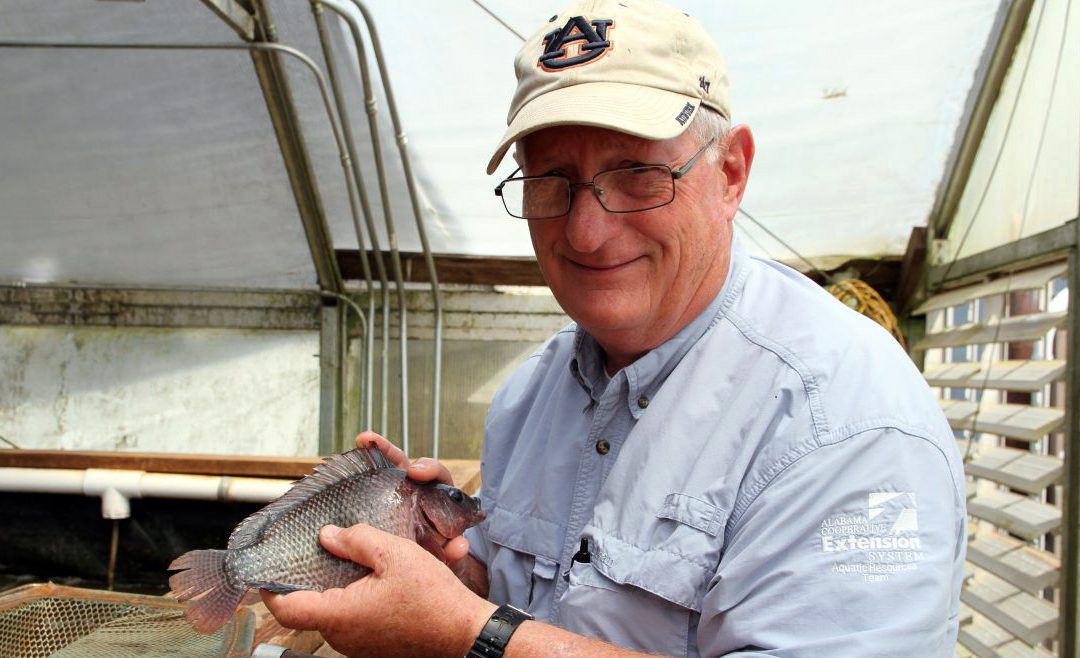
Auburn University’s Aquaponics Working Group has a new vision for U.S. aquaculture, one that includes far more predictability and efficiency than today’s timeworn models of commercial fish production.
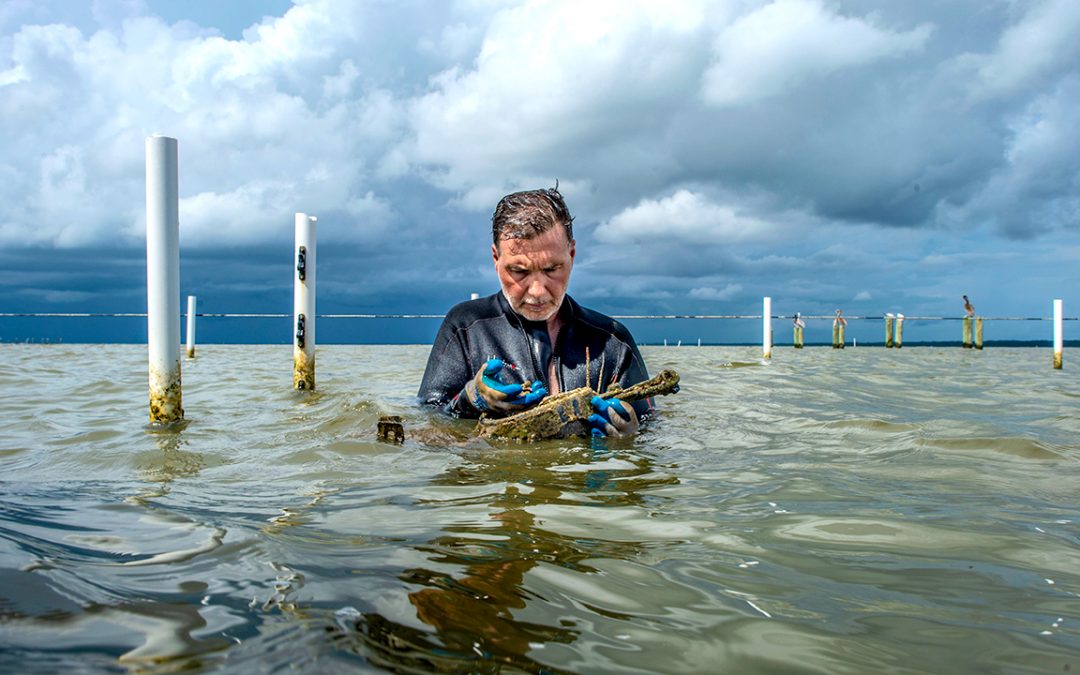
Auburn University marine scientist Bill Walton, one of the driving forces behind the Gulf Coast’s up-and-coming off-bottom oyster-farming industry, has landed a $456,646 federal grant to help ensure that farmed oysters bound for the premium half-shell market are as safe as possible for human consumption.
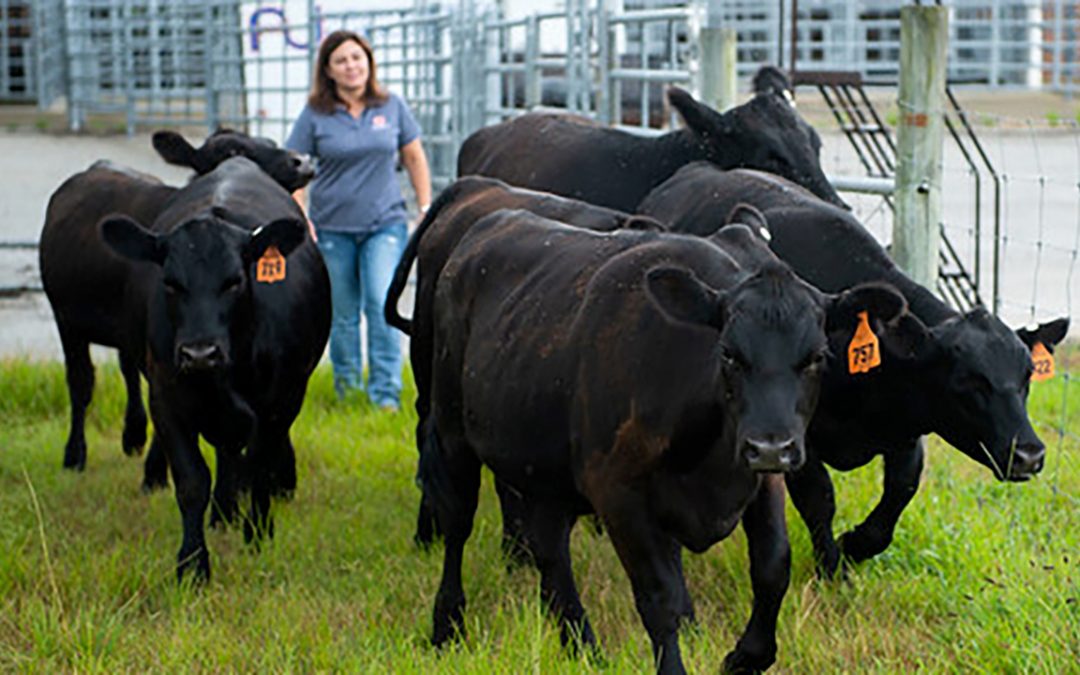
The local foods movement continues to grow in the U.S., with an increasing number of consumers wanting to know where their food comes from, connecting with the families producing it, and buying products at farmers markets and through community-supported agriculture programs.
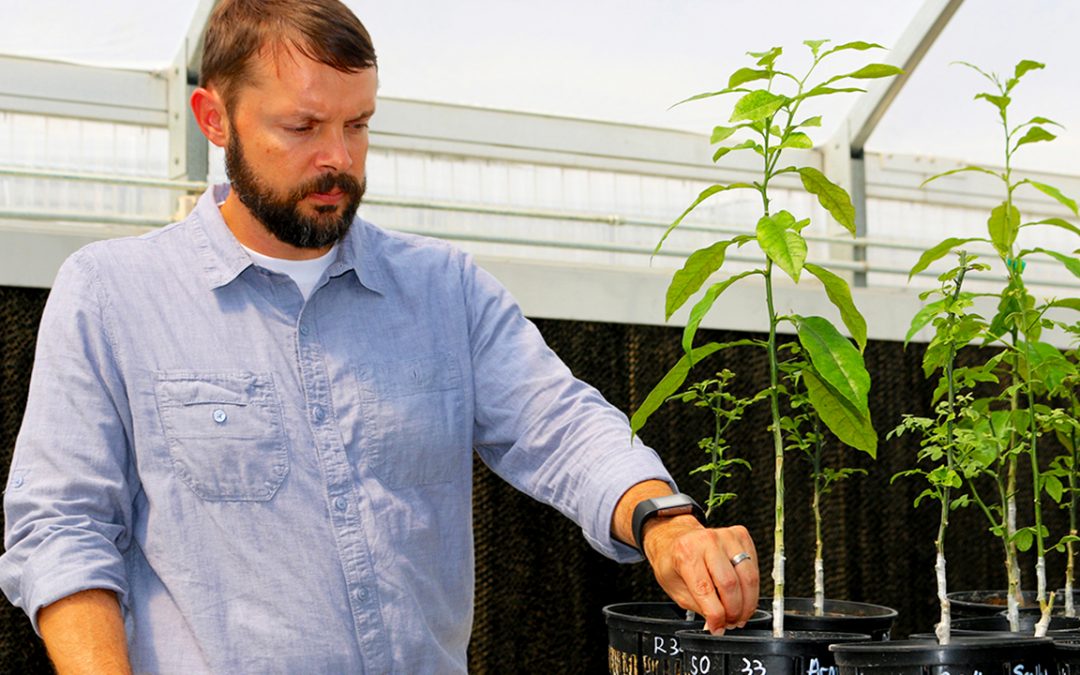
Cost and efficiency are high on the list of concerns for Alabama farmers and equally high on the list of priorities for Auburn University researchers.
AUBURN, Ala. -- The nation’s beekeepers lost 40 percent of their managed honey bee colonies between April 1, 2017, and March 31, 2018, an increase of almost 7 percentage points from the previous year’s total loss rate, results of an annual nationwide survey show....
Live poultry production in the U.S. is on the cusp of revolutionary changes, and Auburn University’s National Poultry Technology Center, or NPTC, is helping to ensure that producers are not left behind. “Efficiency is the key to everything we do,” said Gene Simpson,...
The Alabama Beef Cattle Improvement Association, or BCIA, has named Auburn University’s Gulf Coast Research and Extension Center in Fairhope its 2017 Commercial Producer of the Year.
Longleaf pine ecosystems may be the key to creating more drought-resilient forests, according to a study that Lisa Samuelson, Alabama Agricultural Experiment Station researcher and Alumni Professor in Auburn’s School of Forestry and Wildlife Sciences, is conducting.
Current and aspiring culinary capitalists gained valuable insight on food safety, certification and business management during the Auburn University Food Systems Institute’s sixth annual Food Entrepreneur Conference in Auburn March 21-22. The institute is an Alabama...
The Southern Section of the American Society of Animal Science will recognize Auburn University professor Russ Muntifering for his outstanding service to the livestock industry over his 38-year career when it presents him its 2018 Distinguished Service Award at a...
Auburn University research and extension will be a central focus of “Spotlight on Agriculture,” an upcoming Alabama Public Television documentary series about the state’s agricultural industry. The series will debut on APT Monday, Feb. 5, at 9 p.m. CST, but the Auburn...
Auburn University researchers are hoping to reduce some of the risks and uncertainties of growing biomass crops with a project that focuses on the socioeconomic implications and public policy challenges of bioenergy market development and expansion. Biomass crops are...
Thirty Auburn University College of Agriculture employees won top honors for their outstanding accomplishments and dedicated service throughout the year during the college’s 2017 faculty and staff awards program in Auburn in December. “These individuals have truly...

A six-member team of Auburn agriculture majors won first place in the university’s inaugural Global Health Case Competition in January and advanced to the 2019 statewide contest in March at the University of Alabama Birmingham.
Pioneering plant biotechnologist Kan Wang will discuss crop genetic editing and its implications for sustainable agriculture when she delivers the Spring 2019 York Lecture Tuesday, Feb. 5, at Auburn University. The 4 p.m. presentation in Room 2510 of the Mell...
Auburn University biosystems engineer Jeremiah Davis has assumed duties as director of the Auburn-based National Poultry Technology Center, or NPTC. Davis had served as associate director of the research and outreach center since joining the Auburn faculty in 2015 and...

Auburn University biosystems engineer Jeremiah Davis has assumed duties as director of the Auburn-based National Poultry Technology Center, or NPTC.
The National Academy of Inventors, or NAI, has named Joseph Kloepper, Alumni Professor of plant pathology in Auburn’s College of Agriculture, as one of its 2018 fellows. The 2018 fellows represent 125 research universities and governmental and nonprofit research...

A team of university scientists from across the U.S. is waging a nationwide offensive against a dastardly weed that the turfgrass industry in Alabama and beyond deems Enemy No. 1.

Both professors in the College of Agriculture’s School of Fisheries, Aquaculture and Aquatic Sciences, are among the Auburn University faculty members campuswide who have received prestigious honors as part of Auburn’s 2018 Faculty Awards program.

Auburn University’s Board of Trustees has cleared the way for completion of the multi-unit Charles C. Miller Jr. Poultry Research and Education Center on the north Auburn campus, beginning with construction of an 18,800-square-foot poultry processing plant on the 30-acre site.

Auburn University’s Aquaponics Working Group has a new vision for U.S. aquaculture, one that includes far more predictability and efficiency than today’s timeworn models of commercial fish production.

Auburn University marine scientist Bill Walton, one of the driving forces behind the Gulf Coast’s up-and-coming off-bottom oyster-farming industry, has landed a $456,646 federal grant to help ensure that farmed oysters bound for the premium half-shell market are as safe as possible for human consumption.

The local foods movement continues to grow in the U.S., with an increasing number of consumers wanting to know where their food comes from, connecting with the families producing it, and buying products at farmers markets and through community-supported agriculture programs.

Cost and efficiency are high on the list of concerns for Alabama farmers and equally high on the list of priorities for Auburn University researchers.
AUBURN, Ala. -- The nation’s beekeepers lost 40 percent of their managed honey bee colonies between April 1, 2017, and March 31, 2018, an increase of almost 7 percentage points from the previous year’s total loss rate, results of an annual nationwide survey show....
Live poultry production in the U.S. is on the cusp of revolutionary changes, and Auburn University’s National Poultry Technology Center, or NPTC, is helping to ensure that producers are not left behind. “Efficiency is the key to everything we do,” said Gene Simpson,...
The Alabama Beef Cattle Improvement Association, or BCIA, has named Auburn University’s Gulf Coast Research and Extension Center in Fairhope its 2017 Commercial Producer of the Year.
Longleaf pine ecosystems may be the key to creating more drought-resilient forests, according to a study that Lisa Samuelson, Alabama Agricultural Experiment Station researcher and Alumni Professor in Auburn’s School of Forestry and Wildlife Sciences, is conducting.
Current and aspiring culinary capitalists gained valuable insight on food safety, certification and business management during the Auburn University Food Systems Institute’s sixth annual Food Entrepreneur Conference in Auburn March 21-22. The institute is an Alabama...
The Southern Section of the American Society of Animal Science will recognize Auburn University professor Russ Muntifering for his outstanding service to the livestock industry over his 38-year career when it presents him its 2018 Distinguished Service Award at a...
Auburn University research and extension will be a central focus of “Spotlight on Agriculture,” an upcoming Alabama Public Television documentary series about the state’s agricultural industry. The series will debut on APT Monday, Feb. 5, at 9 p.m. CST, but the Auburn...
Auburn University researchers are hoping to reduce some of the risks and uncertainties of growing biomass crops with a project that focuses on the socioeconomic implications and public policy challenges of bioenergy market development and expansion. Biomass crops are...
Thirty Auburn University College of Agriculture employees won top honors for their outstanding accomplishments and dedicated service throughout the year during the college’s 2017 faculty and staff awards program in Auburn in December. “These individuals have truly...